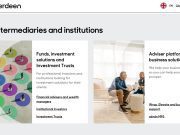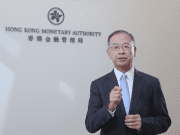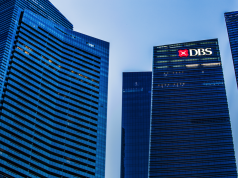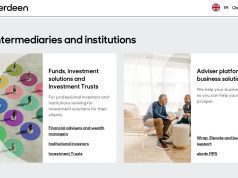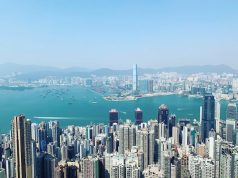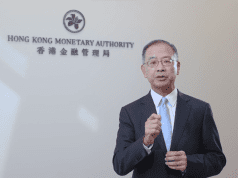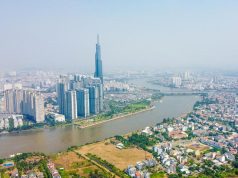Schroders: Investments to Reach Net Zero Emissions, Outlook on China
1st July 2021 | Hong Kong
Schroders, one of the world’s leading asset manager with more than $785 billion assets, held the Schroders APAC Investment Conference 2021 on the 29th and 30th of June 2021 to discuss the drive towards sustainable investments in the new #TheZero environment, to reach net zero emissions. Attended by thought leaders, financial industry professionals including investment managers and advisors, the investment conference focuses on a range of topics in from the role that policy makers and investment managers play, to exploring new investment themes and solutions that have opened up for investors in the dynamic age of #TheZero, with a particular focus on private markets, income investing, China, thematics investing, energy transition and climate change.
” Schroders: Investments to Reach Net Zero Emissions, Outlook on China “
#1 Opening Session – #TheZero Investment Landscape
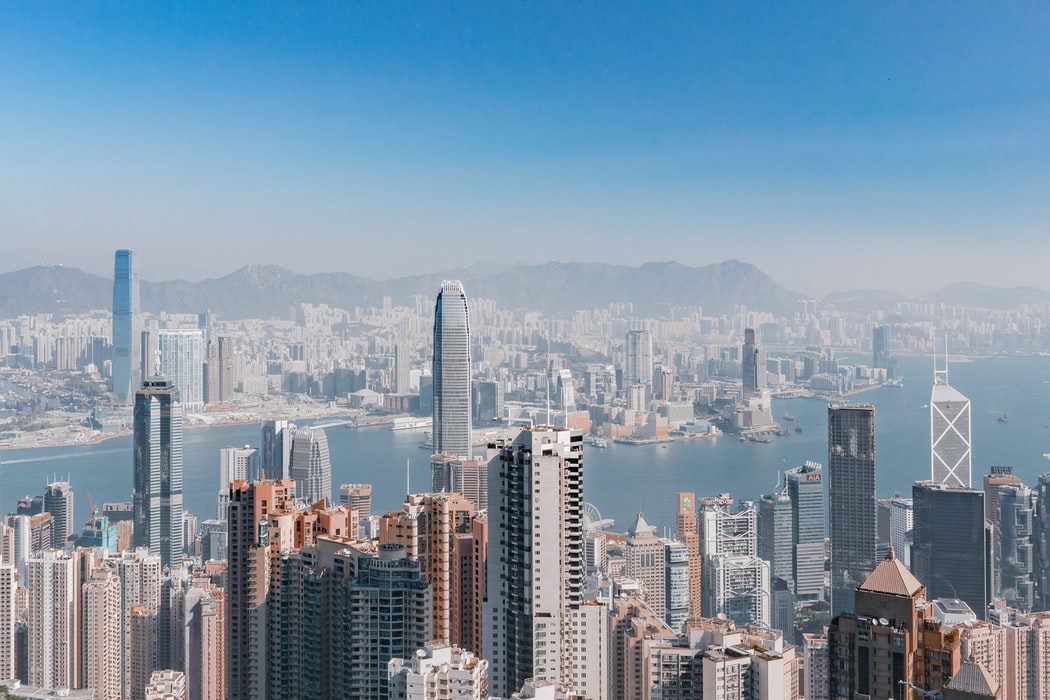
Sebastian Wood, Chairman of Schroders China led a panel discussion to explore how investors can solve the problem of #TheZero when looking across the investment landscape, and the role of active management and sustainability can play in the search for returns.
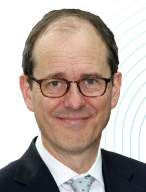
- Sebastian Wood, Chairman of Schroders China
- Johanna Kyrklund, Schroders CIO and Head of Multi-Asset
- Hannah Simons, Head of Sustainability Strategy
- James Cheo, Chief Investment Officer, Southeast Asia, Private Banking and Wealth Management, HSBC
- Tan Sri Andrew Sheng, Former Central Banker for Hong Kong Monetary Authority and Bank Negara Malaysia
Tan Sri Andrew Sheng, Former Central Banker for Hong Kong Monetary Authority and Bank Negara Malaysia:
“Last year, central banks around the world expanded their balance sheets by US$9 trillion to a total of US$40 trillion to help cushion the financial and economic impact of the Covid-19 pandemic. This has kept interest rates at ultra-low levels and has prompted investors to look beyond traditional investments for returns.”
“Long-term financing is required to fulfil the United Nations’ SDGs, yet most of the money created by central banks were for the short end of the market. There is difficulty in scaling up the financial system to transfer that money, especially to on-the-ground sustainability projects. One key issue is that there are currently no standardised frameworks around ESG accounting and disclosure standards.”
Johanna Kyrklund, Chief Investment Officer and Global Head of Multi-Asset Investment, Schroders:
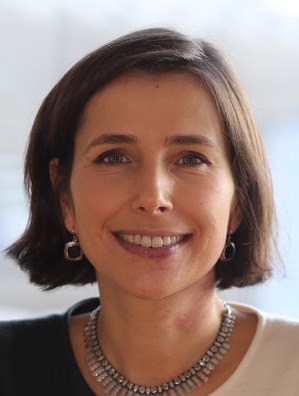
“As the low interest rate environment and rising inflation expectations persist, a multi-asset investment approach can help investors move up the risk curve in a risk-controlled manner. The way to protect against these risks is by having allocations that benefit from this growth environment and have the optionality in place when inflation accelerates.”
“A good example is private assets which could attract returns for investors’ portfolios, and benefit from the ability to manage assets that could influence developments much more than you can in public markets. We are also seeing opportunities in thematic strategies across areas of disruption and innovation themes.”
“With governmental and regulation policies continuing to progress, we recognise the importance of assessing the environmental and social risks that our investments may have. We’ve developed in-house tools to assess all these risks as we are committed to delivering superior returns for our clients, and this gives us the ability to identify the best opportunities and outperform the competition.”
James Cheo, Chief Investment Officer, Southeast Asia, Private Banking and Wealth Management, HSBC:
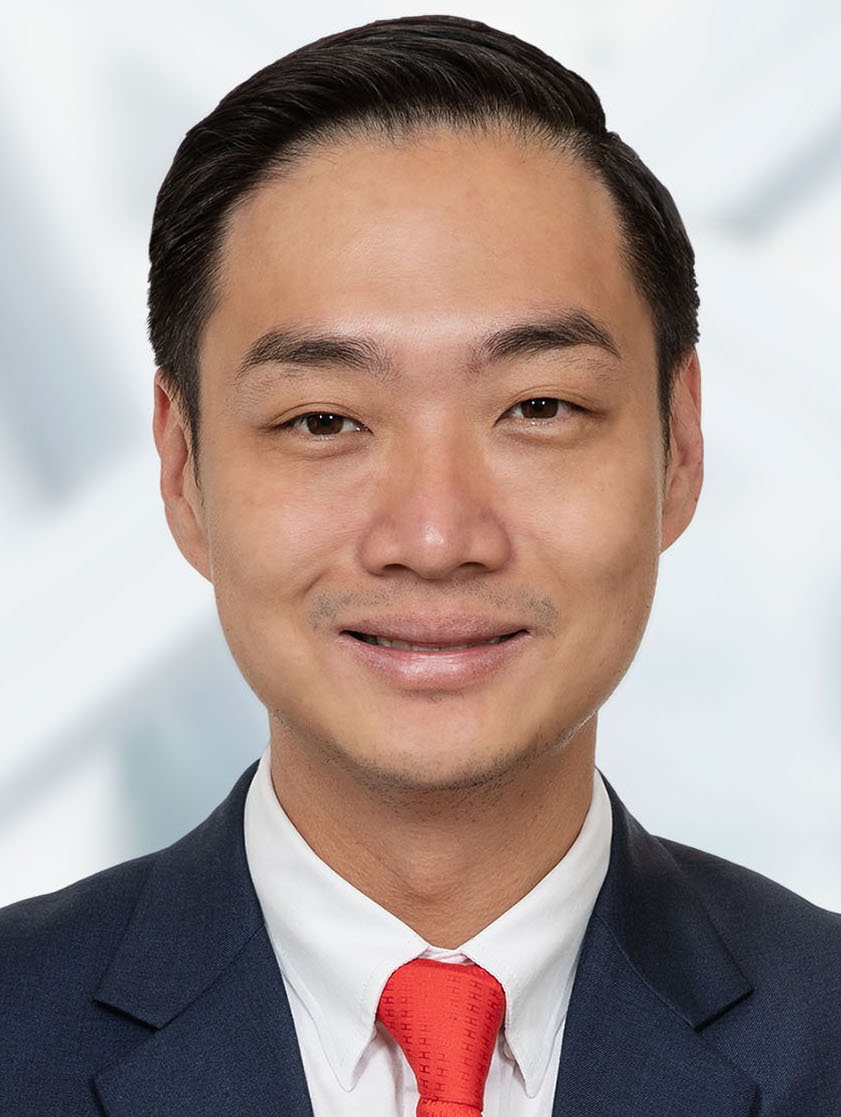
“Inflation is expected to be particularly volatile due to the reopening of economies and the strong demand for goods and services that would typically follow. However, the global economic recovery will be more staggered as countries recover at different paces, leading to a potential drop in correlation between different assets. This means active management will likely play a more important role in the search for returns in the post-pandemic world.”
“There is an opportunity for investors to incorporate ESG factors into fundamental analysis in their search for alpha, as the impact of climate change may not be fully priced into assets. Shareholder activism can also help shape the ESG agenda for companies and unleash further value.”
Hannah Simons, Head of Sustainability Strategy, Schroders:
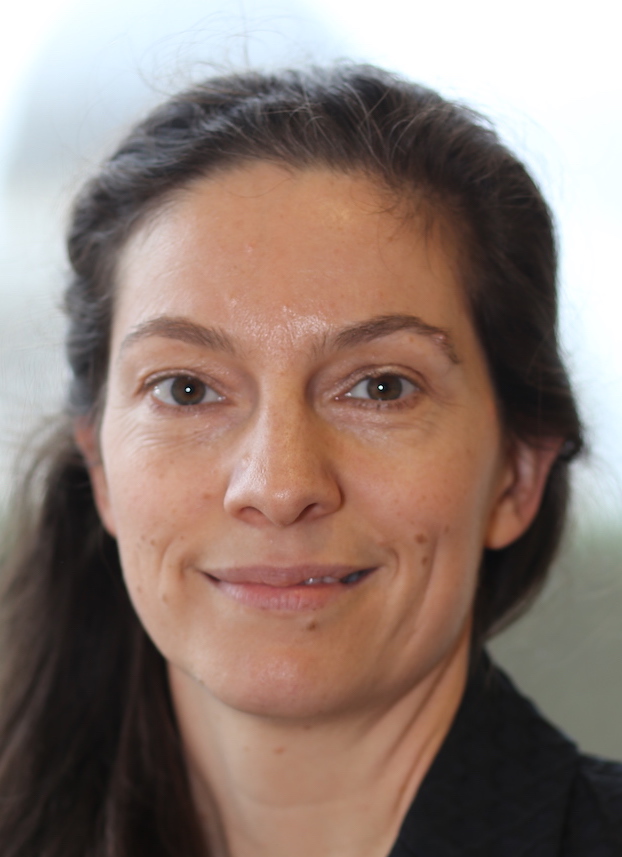
“The United Nations suggests that each year until 2030, around US$5 trillion needs to be invested in new technologies and industries in order to achieve the 17 Sustainable Development Goals (SDGs). In addition, regulations regarding sustainability have gathered momentum, and in Asia, both the Singapore and Hong Kong authorities have been consulting on their own taxonomy including climate regulations.”
“Clearly, this will present huge opportunities and risks for companies, and how we identify those companies will be critical. As we move into a new era for asset management, it is important to look beyond the traditional risk and return spectrum to assess the impact that our investments have on people and the planet.”
“At Schroders, we have embedded sustainability into our investment processes. We utilise a range of proprietary tools to assess and better understand the risks and opportunities that come from sustainability, enabling us to identify companies that can benefit and transition to become more sustainable.”
“What the future holds is the idea of moving beyond ambition and into action, and delivering on the commitments we have made. Being transparent is key, and that is at the heart of Schroders. We bring our clients on our journey to active ownership by sharing with them how we engage with companies in order to enable their transition to a more sustainable future. In the years to come, we’ll look back and realize the significance of the actions that we have taken.”
#2 On Energy Transition, Zero Emission

Alex Monk, Portfolio Manager, Global Resource Equities, Schroders:
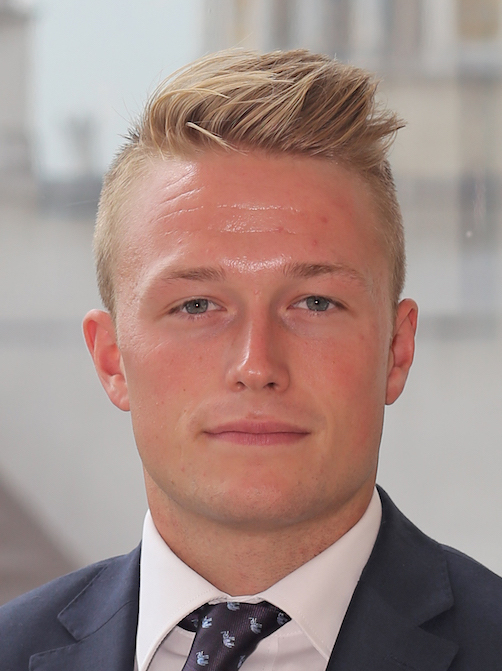
“There are three key structural pillars in the transition of our energy system to net zero emissions. The first is the decarbonisation of power. Renewables are currently around 20% of the overall energy mix today, and this needs to get closer to 85% by 2050. This is going to create opportunities for utility companies building out new renewable assets. It is also a great opportunity for companies providing the equipment, such as wind turbines and solar panels, as well as those that are involved in the broader infrastructure such as cables connecting offshore wind farms to energy grids.
The second is the electrification of energy. Renewables produce electricity, but electricity is only 20% of all the energy people consume today. To maximise the benefits of renewables, we need to increase the amount of electricity use to 50% by 2050. One of the best ways to get to a more electrified energy system is by using things like electric vehicles (EV). In fact, over the course of a year, one EV on average uses as much electricity as a house.
The final pillar is increasing the efficiency of energy consumption. Currently, a huge amount of energy is wasted producing and transporting energy in far flung locations. By producing energy or building storage facilities at the point of use and implementing smart technologies to manage energy consumption, we can massively reduce the energy intensity of the economy.”
“Therefore, when we think about the energy transition opportunity, we should think about investing across the entire value chain. Clean energy generation is only part of it.”
“The long-term investment outlook for energy transition is positive due to rising policy support, improving cost benefits, and growing consumer demand. These three forces together create a powerful environment for companies looking to deploy capital in this space and grow earnings and cash flows that can ultimately flow back to shareholders over the long-term. There are still near-term risks, particularly around supply chains and inflation, but valuations across the space are looking very reasonable with a long-term view. We believe that a focused thematic approach with a disciplined investment process and takes broader sustainability concerns at heart is absolutely key to capturing the growing investment opportunities in energy transition.”
#2 On Thematic Investing – Technological disruption, climate change and lifestyle changes

Keiko Kondo, Deputy Head of Multi-Asset Investment Asia, Schroders:

“Thematic investing is often associated with trends that address the transformation in the daily lives that people experience. However, the themes to invest in must be durable, disciplined and investable, meaning they need to be structural and has a reasonably sized investment universe. Taking a “multi-thematic” and “multi-asset” approach to thematic investing enables investors to tap into a broad set of opportunities across the globe, whilst managing the risks associated with investments in companies with long-term growth potential.”
“When managing our global multi-asset thematic strategy, we focus on three core themes: Innovative Transformation, Cities and Lifestyles, and Environment and Sustainability. Technology is often at the heart of these three themes, but we need to look beyond the obvious and consider what is happening behind the scene to fully realise the potential.”
“Take Innovative Transformation as an example, 5G is obviously one of focal points but it is not just about faster internet speed – we should think about its wider application such as autonomous driving, real-time traffic control and environment monitoring, which all help to improve our daily lives.”
Jason Yu, Head of Multi-Asset Management, Asia, Schroders:
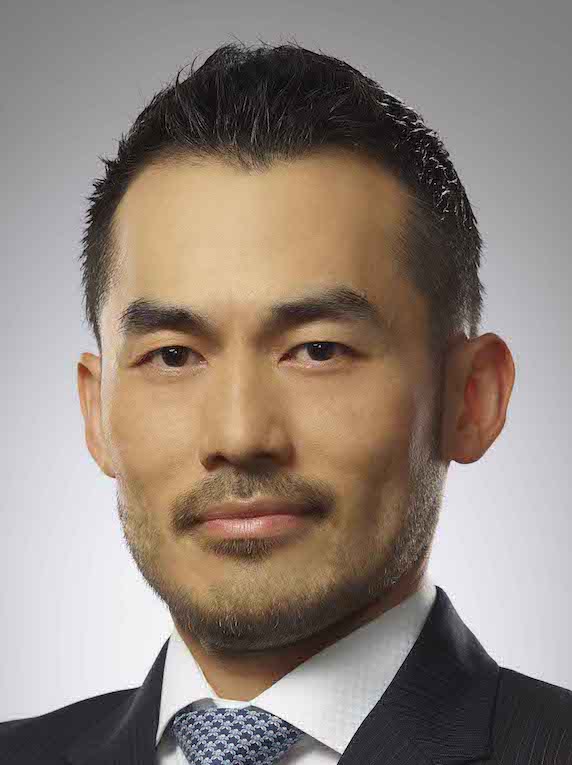
“People’s increasing awareness of ESG and climate change, coupled with the net zero targets set by various governments, means that demand for renewable energy – which currently accounts for a small part in the global energy mix – will rise, bringing forth attractive investment opportunities in this area. For example, wind power is one subsector that stands out from an investment perspective, amongst others, and we should think a level deeper such as opportunities in the transfer and storage of electricity produced by wind turbines.”
“Around Cities and Lifestyles, the increasing use of e-commerce has brought in worldwide sales of US$ 4 trillion in 2020 and this is expected to grow to US$5 trillion in less than two years’ time. We are already seeing e-commerce retailers increase the use of artificial intelligence and robotics in their platforms and warehouse systems to cater to the growing demand.”
#3 On China
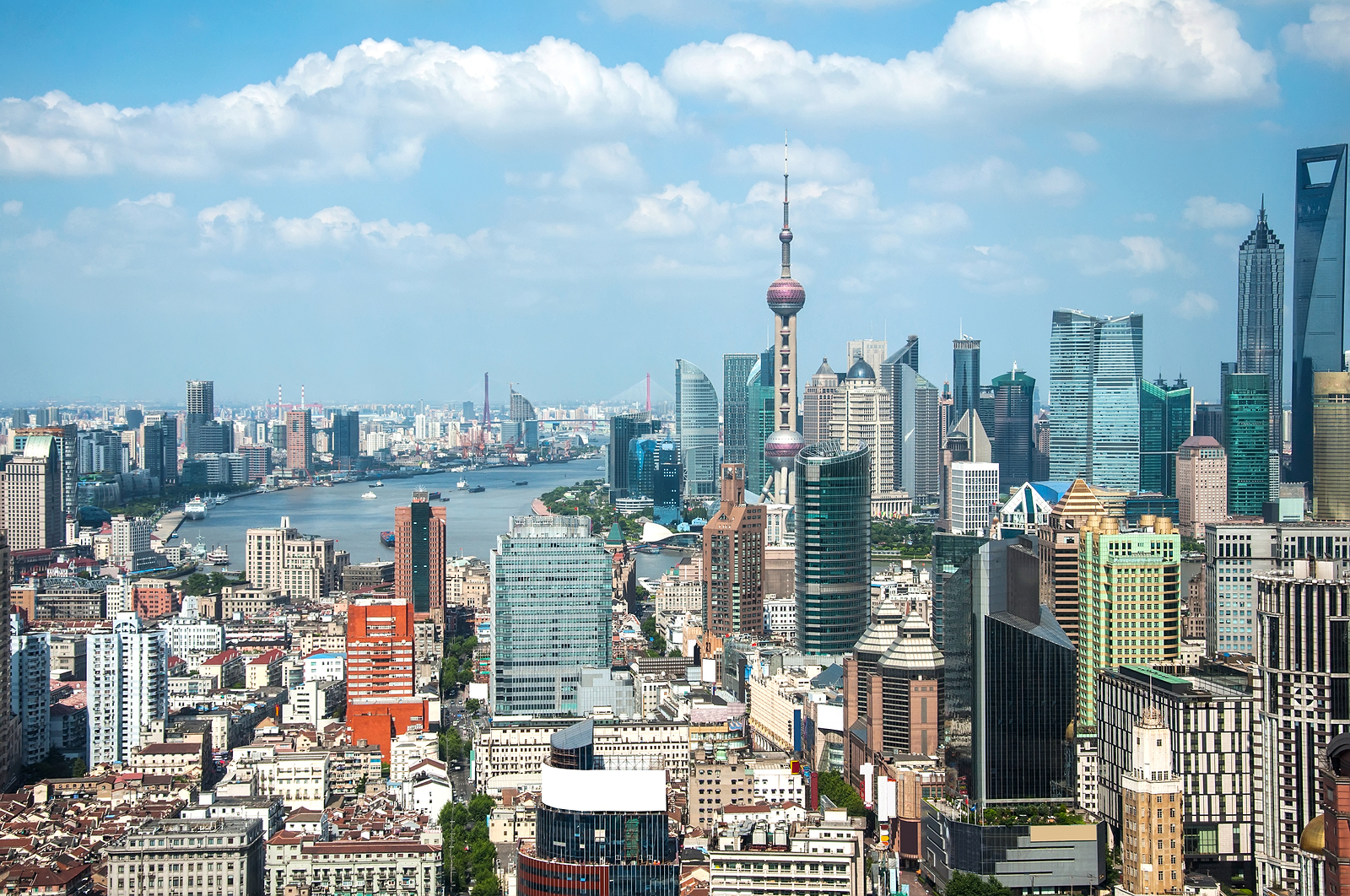
China’s economy has performed well in the past year due to its ability to manage the Covid-19 crisis, delivering timely and effective monetary and fiscal stimulus measures. The country recorded an 18% year-on-year GDP growth in the first quarter of 2021 – setting a historic single quarter record, but with growth now normalising, can investors still find opportunities in China in the age of #TheZero?
Schroders believes the best approach to fixed income investing in China is to have a flexible approach that allows you to invest in both onshore and offshore markets. One of the key benefits with onshore is its diversification benefits, whilst offshore offers better trading liquidity and valuation, especially in high yield names.
David Rees, Economist, Schroders:
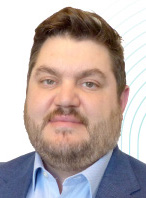
“Growth in China is going to be slower over the long term, but it will still be faster than other markets in the world. We expect China to be growing at around 5% per year over the next decade, and productivity growth will be key in achieving that.
Building up the high technology sector should help with this, and this could also help raise the overall income level of the country and its income per capita over the long term.”
Angus Hui, Head of Asian & Emerging Markets Credit, Schroders:
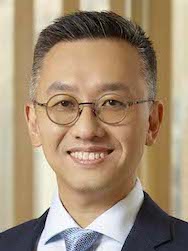
“With the low interest rate environment, China’s opening of its bond market is timely and attractive for investors. The China onshore RMB-denominated bond market is now the second largest bond market in the world after the US, and its offshore USD-denominated bond market accounts for more than half of the total market share in Asia fixed income. The further gradual index inclusion of Chinese government bonds in international indices and the continued demand from foreign investors will help further support China bond markets which is well developed relative to most other emerging markets.”
“Chinese corporate bonds boast attractive yields and wider spreads with lower duration risks than other global credit markets. The investment grade market has delivered relatively steady performance over the last five years. In today’s historic low interest rate environment, this additional income and carry benefit could prove to be even more valuable for investors. We are also seeing some multinational corporations financing their capital requirement via the RMB-denominated bond markets, and these will offer additional benefits and diversification for investors as well.”
“Another point to note is that Chinese bonds have low correlation with other asset classes, which means they can offer diversification benefits. China’s economic and monetary policy cycles will not be perfectly synchronized with other parts of the world, but influenced by conditions within China. That ought to lead to lower correlations between Chinese bonds and other markets. But when assessing fixed income opportunities in China, take for example the real estate sector, the key is to have a forward-looking view on individual names and assess other factors such as their landbank, execution capabilities, access of other borrowing channels, and balance sheets quality.”
“Green bonds are the other area that investors may want to pay attention to, as it is aligned with the country’s sustainable development goals. We expect more Chinese green bond issuances to occur in both the onshore and offshore space, especially now that its standards have elevated much closer to international levels. For instance, green coal projects are no longer considered as green bonds in China anymore, and we expect more companies from the renewable and alternative energy sectors, as well as new economy and tech companies, to issues green bonds going forward.”
#4 Keynote – Private Sector Role in net #Zero emissions
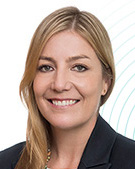
Ella Reilly, Schroders Sustainability Manager, moderated a discussion with the event’s keynote speaker Paul Polman, Vice-Chair of the UN Global Compact, former CEO of Unilever and Co-Founder of IMAGINE^, who shared his views on how the private sector can play a pivotal role in accelerating progress to tackle the critical challenges facing people and the planet, including the race to net #Zero emissions, and what investors can do to drive and participate in this journey:
Paul Polman, Vice-Chair of the UN Global Compact, former CEO of Unilever and Co-Founder of IMAGINE^:
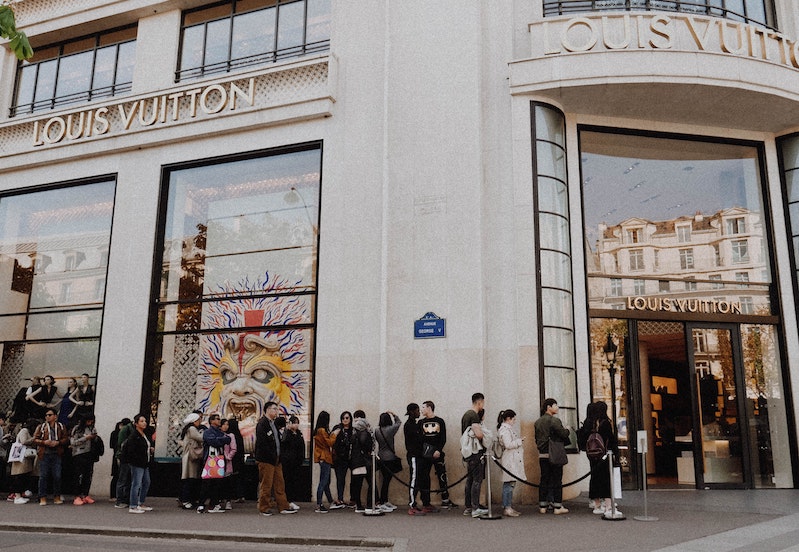
“Climate change and inequality are significant global challenges, but I think 2020 and the Covid-19 pandemic has raised awareness of what needs to be done. People have realised that the cost of not addressing these issues is now significantly higher than the cost of taking action, which makes it a financially attractive proposition.”
“The investment industry also plays a crucial role. Today, everywhere we look points to this green recovery being more cost efficient, able to generate higher returns, and provide more resilient jobs. Many asset managers are now holding companies to a higher standard in terms of social and environmental behaviour. Investors are also increasingly recognising that companies with strong ESG performance deserve a premium valuation to their share price, and companies that prioritise ESG initiatives represent better opportunities for long term returns.
“From an investment perspective, one important thing that investors should do is align their portfolios with the Paris Agreement and decarbonise their portfolios. I also think putting nature higher on the investment agenda could present interesting opportunities.”
^ Under Paul Polman’s decade-long leadership, Unilever succeeded at meeting the goals set out in its Sustainable Living Plan, which aimed to double its growth while reducing its environmental impact by half and tripling its social impact. Paul Polman founded IMAGINE, a social venture focused on accelerating business leadership across a range of industries to achieve the UN’s Sustainable Development Goals (SDGs). This is reflective of Paul’s leadership in the UN, including his role as member of the UN Secretary General’s High-level Panel that developed the SDGs and vice-chair of the UN Global Compact.
#5 On Portfolio Construction – #TheNetZero

Chris Durack, Schroders Co-Head Asia Pacific, led a panel of investment professionals that discussed what portfolio construction might look like going forward and the different levers investors can pull in #TheZero environment, including investing in private markets, looking deeper into fast growing and changing sectors such as energy transition and healthcare innovation, and looking at opportunities in emerging markets such as China.
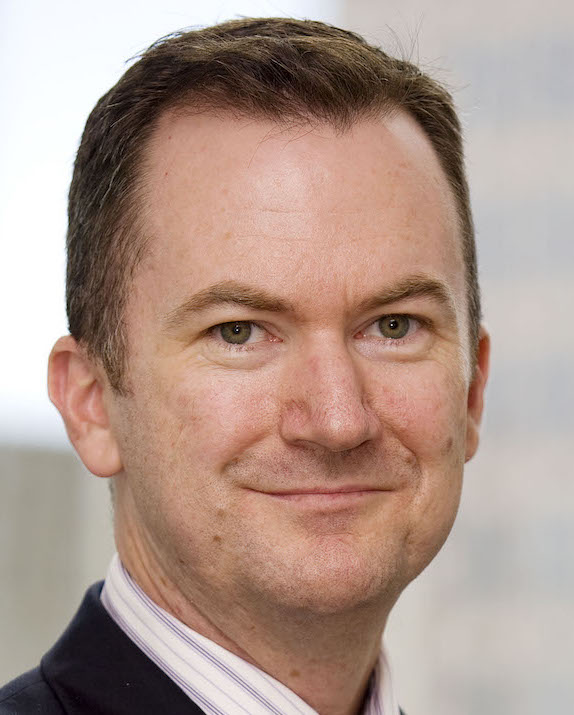
- Chris Durack, Co-Head Asia Pacific, Schroders
- Simon Doyle, Head of Fixed Income & Multi-Asset Australia, Schroders
- Julie Koo, Managing Director, Head of Citi Investment Management Sales, Asia Pacific
- Mike Nikou, Global Partner, Antler
Simon Doyle, Head of Fixed Income & Multi-Asset Australia, Schroders:
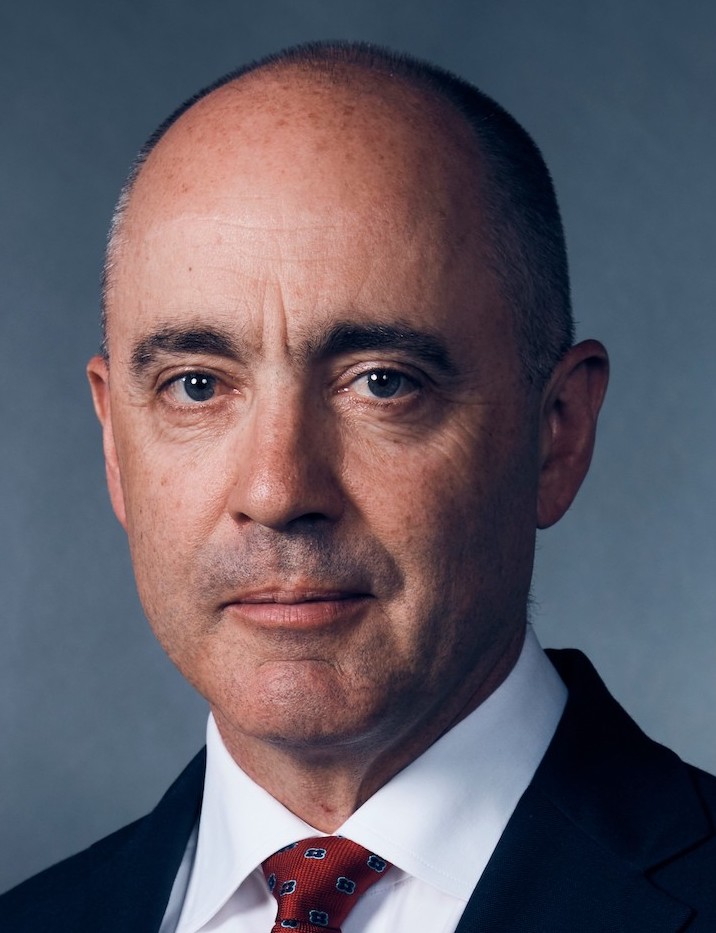
“What we are seeing now is a significant degree of innovation in the way multi-asset portfolios are constructed, which includes adding a broader range of assets such as private assets and looking broader and deeper into credit markets.”
“For instance, fixed income as an asset class is incredibly broad, from sovereign bonds through to credit, investment grade credit through to lower quality companies, through into private markets, through into different forms of commercial lending. Investors should utilise that breadth and go deeper to find pockets of value. None of these by themselves is the solution, but looking at a number of them as part of a solution for portfolios can be quite powerful in generating returns and income.”
“There are opportunities in private markets from both a growth perspective and an income perspective. One of the key questions to ask is what is your tolerance for illiquidity, and the other is what do you want that exposure in private markets to do – is it to generate returns or is if for income? There is a cost to every benefit that you get through these markets, but clearly, part of a well-diversified portfolio is a well thought through exposure to private markets.”
Julie Koo, Managing Director, Head of Citi Investment Management Sales, Asia Pacific:
“We came into the start of this year really advising our clients to think about the challenges in traditional fixed income markets and encouraging them to think about other sources of income including equity dividends and alternatives. China is one area to think about. The country is a US$15 trillion bond market and second largest in the world, and it accounts for 50% of bonds globally that are yielding more than 2.5%. With the opening of the Bond Connect programme and the inclusion of China bonds into some of the global indices in recent years, we have seen more international investors finding their way to that market. In 2020, we saw about US$200 billion flow into China’s bond market, and we expect this to continue to grow. China’s bond market is definitely too big to ignore.”
“The return potential from private markets is out there, but finding that potential can be tricky for individual investors. The principle of getting the full benefit of private markets is really making that allocation and staying invested. That is why we spend a lot of time guiding our clients through this process, helping them build access to private markets to achieve the returns they are looking for.”
“We see several key themes offering growth opportunities for investors. One is around digitization, and we’re getting more fine-tuned about it and thinking through what is going to drive the next leg of growth for technology, which we believe is data. With the roll out of 5G, there will be even more data out there that needs to be housed and stored. Another theme is energy transition, and we expect more private companies will be looking at ways that they can transform their own businesses to contribute to government’s net zero targets.”
Mike Nikou, Global Partner, Antler:
“We’re seeing investors allocating a larger portion of their portfolio to non-traditional asset classes, and I think that will continue in the foreseeable future. For example, about five years ago, US$30 billion worth of assets was flowing into venture capital funds, and that has almost tripled in the last three to four years. This is a strong indication that investors are not only talking about private assets, but they are executing on that strategy.”
“What is important with private assets is that investors can access some of the most innovative technology companies that are being built today at good valuation, and that is because companies are staying private for much longer. What is interesting is that 20 years ago, there were 7,000 listed companies in the US and that number now is less than 4,500. That’s almost a 40% reduction of listed companies. So if investors want to get access to a certain sector or a certain type of company, they will most likely need to allocate to private assets.”
“However, I do think it is important for investors to conduct due diligence and screening before taking a decision on private assets, because, for instance, the dispersion of returns between the first quartile and fourth quartile can be huge. Selecting the right fund managers to manage this part of the asset class can help investors achieve the illiquidity premium on private market investments.”
“That is why we believe now is a good time for investors to allocate portions of their portfolio to venture capital. Some of today’s tech startups could be global giants of tomorrow. By investing in venture funds, investors can get access to private companies that are in early growth stage where valuations are low, as well as access to some of the pre-IPO growth stories. From a portfolio construction perspective, venture capital is a good diversifier as it has a relatively low correlation to public markets.”
#6 Closing Panel – Future of Wealth Solutions, Investments, Clients

Chuck Ng, Head of Global Private Banks Distribution, Asia, Schroders, led a panel discussion with the aim of providing structure and clarity to the future of wealth solutions by exploring the potential challenges and opportunities through three lenses: The Future of Investment Products, The Future of Client Engagement, and The Future of Investment Management.
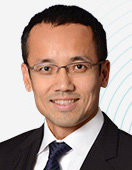
- Chuck Ng, Head of Global Private Banks Distribution, Asia, Schroders
- Andrew Connell, Head of Portfolio Solutions, Schroders
- Gregory Gibb, Co-CEO of Lufax Holding and co-chairman & CEO of Lufax
- Rodolphe Larqué, Head of Managed Solutions Asia Pacific, Credit Suisse
Chuck Ng, Head of Global Private Banks Distribution, Asia, Schroders:
“With every new generation, investors gain new expectations for the investment industry in terms of how advice and investment products are being delivered. And with every financial crisis, we are held against new standards and safeguards. The increasing regulatory responsibilities and emergence of non-traditional providers all come together with other disruptions to present challenges as well as opportunities for our industry. Against this backdrop, imagining possible futures is highly daunting, but we believe this is not impossible.”
Andrew Connell, Head of Portfolio Solutions, Schroders:
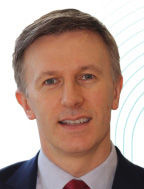
“Accessing alternatives has always been a challenge for investors in the intermediary and wealth channel. It is often a lack of liquidity and transparency that has limited access to opportunities like private equity, infrastructure and natural resources. However, there are technologies available today that could improve delivery of these assets to investors.
One of these is the tokenisation of assets. If successful, this could improve liquidity and transparency as tokens can be traded on a secondary market. Even so, this technology is not the “magic bullet” for all alternatives quite yet. One reason for this is that some alternatives are inherently heterogeneous and opaque so it will always be a struggle to tokenise a unique asset like a private loan agreement.
The most important hurdle yet to be overcome is the development of the appropriate regulatory frameworks, but concrete steps have been taken, notably in Singapore and Japan, to make this happen. If tokenisation can overcome the technical and regulatory hurdles, it has the potential to offer the benefits of greater diversification and new sources of return, which are all the more welcome in #TheZero environment. We are still in the early days, but tokenisation is an area which we should be watching closely to generate new investment products.”
“Today’s investment industry is facing incredible change. Technology is transforming the ability to keep pace with the evolving needs and expectations of investors. To achieve success tomorrow we need to collaborate today and harness technology to generate better outcomes for investors. When we look back in five years’ time, the current status quo will seem like the distant past.”
Gregory Gibb, Co-CEO of Lufax Holding and co-chairman & CEO of Lufax:
“Across all market segments, we are not only seeing a shift in what people invest in as they manoeuvre #TheZero environment, but the interface of how they are making these choices is also changing. What matters most is empowering clients with content in order to help them compare and select products that are right for them. And once they have made an investment, it is equally important to give them the information and content they need, ideally in real-time and in a simplistic way, to stay the course amidst more volatile markets.”
“As more investors now demand advice and solutions that are personalised to their life circumstances, it is crucial that we deliver this personalisation with simplicity. Technology will play an integral role in this; behind that simplicity are enormously complex algorithms driven by big data to help create a highly personalised investment experience for clients efficiently and at scale. The other layer we need to think about is how to help clients formulate their investment goals beyond the traditional ‘retirement’ and ‘children college education’ objectives – it’s more about generating reasonable and safe returns over certain time periods, and having the right diversification mechanisms or portfolios in place that can help them achieve their short and long term goals.”
“When we’re moving to a world where 80 or 90% of transactions are done online, there will always be people looking for the best quality at the cheapest price. But over time, I think customers will stick with one platform, one channel, and one provider if they are getting good outcomes.”
Rodolphe Larqué, Head of Managed Solutions Asia Pacific, Credit Suisse:
“As a wealth manager for high-net worth and ultra-high net worth clients, we work in close partnership with our clients and have good insights to their needs as well as their desired wealth outcomes. It is our duty to dissect and analyse these information before we advise them on their next steps. We need to look deeper at our communication channels with our clients, be it digitally or in-person, as different clients may respond to these approaches differently. Personalization, digitalization, data-driven analyses – I agree with all of these and they are fascinating topics, but we are just scratching the surface and there is much more that needs to be done to work through the ‘how’ of client engagement.”
“At the core of all this is customisation and demonstrating to clients the value-add we can offer, whether it’s in using technology to streamline all processes or in the investment solutions we provide.”
Schroders APAC Investment Conference 2021
On 29 and 30 June 2021, Schroders engaged financial industry professionals and business leaders at its flagship investment conference for clients across Asia Pacific to discuss the potential levers investors can pull to drive sustainable investments in #TheZero environment – whether it is in the interest rate policy, return on traditional income investments, the rising urgency to reach net zero emissions, or in a world where zero action means zero results.
A diverse line-up of thought leaders discussed a range of topics, from the role that policy makers and investment managers play, to exploring new investment themes and solutions that have opened up for investors in the dynamic age of #TheZero, with a particular focus on private markets, income investing, China, thematic investing, energy transition and climate change.
About Schroders
As a global active asset manager, the way we direct capital not only shapes the financial returns we achieve for our clients but also the impact that the companies in which we invest on their behalf might have on society. The relationship between these two outcomes has rapidly evolved as we see a fundamental shift in how companies are viewed and valued. Understanding the impact that they can have on society and the planet is crucial in assessing their ability to deliver risk-adjusted profits.
Our ongoing success is built on a history of experience and expertise, whereby we partner with our clients to construct innovative products and solutions across our five business areas consisting of Private Assets & Alternatives, Solutions, Mutual Funds, Institutional and Wealth Management and invest in a wide range of assets and geographies. By combining our commitment to active management and focus on sustainability, our strategic capabilities are designed to deliver positive outcomes for our clients.
We are responsible for £574.4 billion (€641.7 billion/$785.1 billion 31/12/20) assets of our clients, managed locally by 42 investment teams worldwide. As a global business with over 5,500 talented staff across 35 locations, we are able to stay close to our clients and understand their needs. We have over 200 years of experience in investment and innovation
Visit: www.schroders.com.hk
Sign Up / Register
Caproasia Users
- Manage $20 million to $3 billion of assets
- Invest $3 million to $300 million
- Advise institutions, billionaires, UHNWs & HNWs
Caproasia Platforms | 11,000 Investors & Advisors
- Caproasia.com
- Caproasia Access
- Caproasia Events
- The Financial Centre | Find Services
- Membership
- Family Office Circle
- Professional Investor Circle
- Investor Relations Network
Monthly Roundtable & Networking
Family Office Programs
The 2025 Investment Day
- March - Hong Kong
- March - Singapore
- July - Hong Kong
- July - Singapore
- Sept- Hong Kong
- Sept - Singapore
- Oct- Hong Kong
- Nov - Singapore
- Visit: The Investment Day | Register: Click here
Caproasia Summits
- The Institutional Investor Summit
- The Investment / Alternatives Summit
- The Private Wealth Summit
- The Family Office Summit
- The CEO & Entrepreneur Summit
- The Capital Markets Summit
- The ESG / Sustainable Investment Summit



